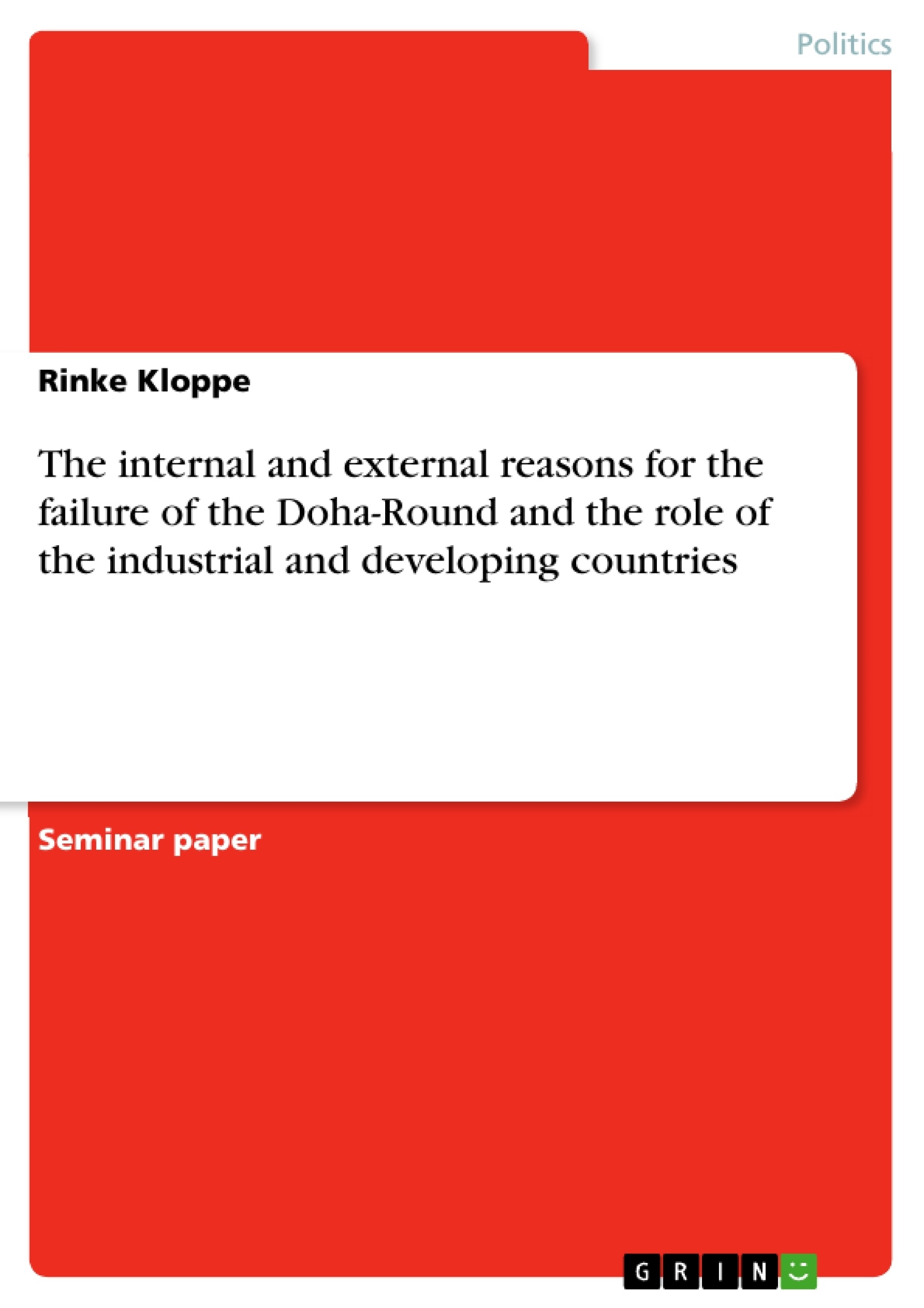During the fourth Ministerial Conference of the World Trade Organization in Doha, Qatar, from November 9th to 14th 2001, the new round of multilateral trade talks became known as the Doha Round.
Against the background of the terrorist attacks in the USA that had happened two months before in September, a strong message of stability and prosperity to the economical development and the wish for a greater political cohesion were communicated and were seen to become resolved in multilateral trade negotiations.
The principle aim of this ministerial-level meeting was to lower trade barriers globally, which allows countries to increase trade worldwide by a more efficient exchange of goods among countries and to establish a more stable and certain foundation for today’s dynamic global marketplace in order to avoid a repetition of terrorist attacks.
However, the Doha Round failed and even following ministerial conferences and meetings that took place in Cancún, Mexico (2003), Hong Kong (2005), and Geneva, Switzerland (2004, 2006, 2008) did not lead to a satisfying result.
In the following chapters, the internal, thus the relationship between developing and industrialized countries with focus on the EU and the leading developing countries Brazil, India and China - which are developing to the leading economic powers in the world at the moment - and external, thus especially the upcoming trend towards bilateralism and regionalism, reasons for the collapse of the multilateral trade round will be discussed.
The question is whether the Doha Round, thus multilateral trade talks, still has a chance – coupled with the WTO – in a growing regionalized world and what can be done to find a consensus in the world trade system.
The focus of the paper lies on the conditions, the framework and the results of the rounds and the development in perspective, but does not cover the content of the agreements.
Inhaltsverzeichnis (Table of Contents)
- Introduction
- The WTO rounds and agreements
- The Ministerial Conference of Doha 2001
- The Ministerial Conference in Cancún 2003
- The WTO agreement in Geneva 2004
- The Ministerial Conference in Hong Kong 2005
- The Ministerial Conference in Geneva 2008
- The future of the WTO
- Multilateralism vs. Regionalism
- The position of the EU
- The position of the developing countries
- The position of the WTO
- Conclusion
Zielsetzung und Themenschwerpunkte (Objectives and Key Themes)
This study examines the internal and external reasons for the failure of the Doha Round of multilateral trade negotiations, with a particular focus on the roles of industrial and developing countries. The paper investigates the conditions, framework, and results of the Doha Round and its subsequent meetings, while highlighting the growing trend towards bilateralism and regionalism. It also explores the potential for future multilateral trade talks within the WTO. Key themes explored in the paper include:- The role of developing countries in the WTO and their evolving position from passive to active participants.
- The challenges posed by the increasing influence of developing countries, such as Brazil, China, and India, to the traditional bipolar WTO system dominated by the US and EU.
- The impact of regional trade agreements and their influence on the future of multilateral trade talks.
- The challenges and opportunities for the WTO in a world characterized by increasing regionalization and the need for consensus in the global trade system.
- The importance of agricultural trade in the Doha Round and the difficulties in achieving a consensus on domestic support, market access, and trade-distorting subsidies.
Zusammenfassung der Kapitel (Chapter Summaries)
Introduction
This chapter introduces the Doha Round, which was launched at the fourth Ministerial Conference of the World Trade Organization in Doha, Qatar in 2001. The chapter highlights the round's aim to lower trade barriers globally, promote economic development, and enhance political cohesion in a post-9/11 world. It also discusses the challenges faced by the Doha Round, including the increasing influence of developing countries and the emergence of regional trade agreements.The WTO rounds and agreements
This chapter provides a brief overview of the WTO's history and its rounds of trade negotiations. It focuses on the Ministerial Conferences of Doha (2001), Cancún (2003), Hong Kong (2005), and Geneva (2004, 2006, 2008). It also discusses the WTO's preamble, which highlights the desire of member states to reduce tariffs and other trade barriers.Multilateralism vs. Regionalism
This chapter explores the debate between multilateralism and regionalism in international trade. It examines the positions of the EU, developing countries, and the WTO, highlighting the challenges posed by regional trade agreements to the multilateral trading system.Schlüsselwörter (Keywords)
This paper examines the challenges and complexities of the Doha Round of multilateral trade negotiations, focusing on the roles of developing countries and the rise of regionalism. Key terms and concepts include: trade liberalization, Doha Development Round, multilateralism, regionalism, agricultural trade, domestic support, market access, WTO, EU, Brazil, China, India, TRIPS, and special and differential treatment.- Quote paper
- Rinke Kloppe (Author), 2009, The internal and external reasons for the failure of the Doha-Round and the role of the industrial and developing countries, Munich, GRIN Verlag, https://www.grin.com/document/139117




